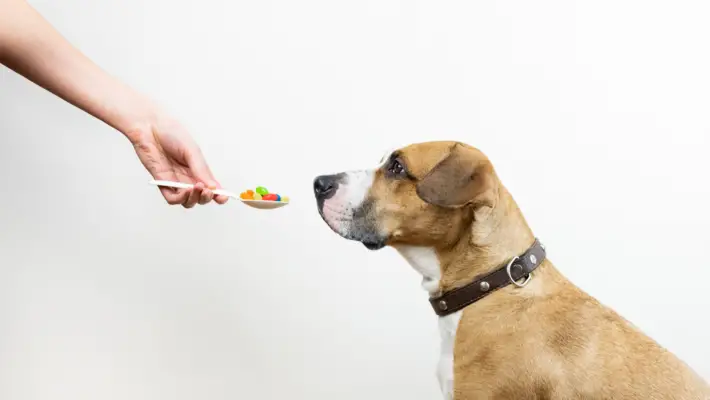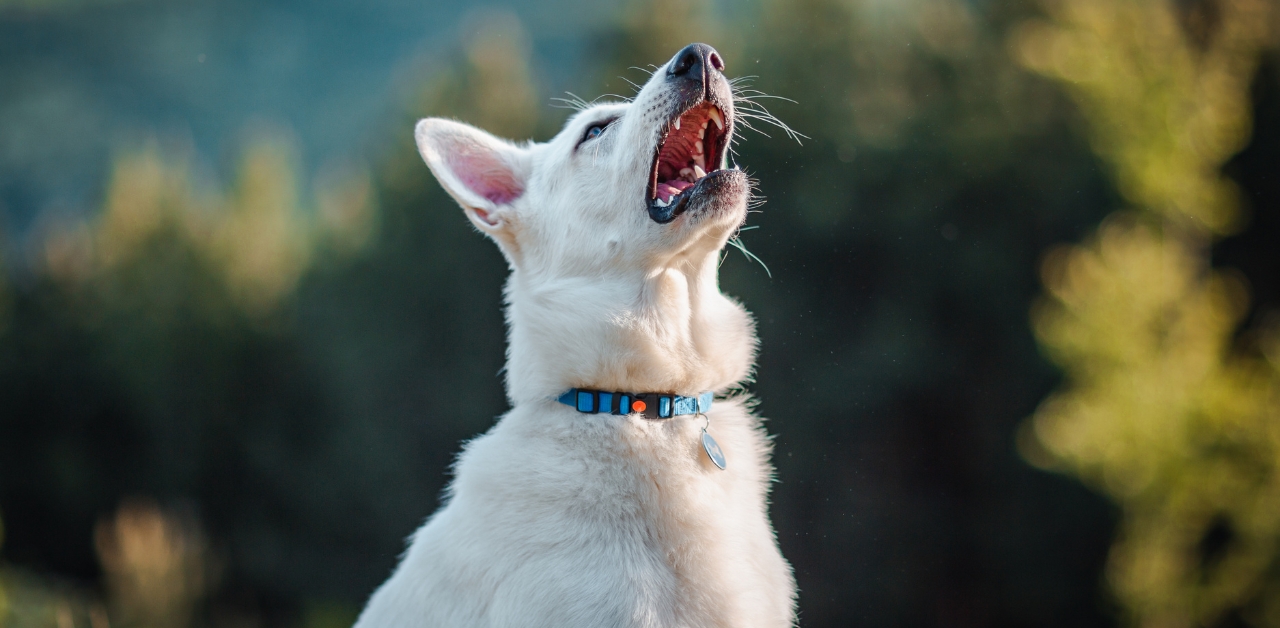If you’ve noticed damp spots around your house or your dog’s bedding, your dog friend may have a leaky bladder issue. A dog with a leaky bladder leaks urine involuntarily. This troubling symptom is not a normal part of aging and is usually caused by an underlying medical condition.
In this beginner’s guide, we’ll cover the common causes of leaky bladder in dogs, how to identify symptoms, diagnosis options, and the available treatment plans. Understanding the basics of this condition can help you seek prompt veterinary care to resolve your dog’s urinary leakage and prevent additional complications.
What Causes Leaky Bladder in Dogs?
A variety of medical issues can lead to leaky bladder and urinary incontinence in dogs. Here are some of the most common reasons:

Urinary Tract Infection
Bacterial infections of the bladder or urinary tract can cause inflammation and irritation that leads to urine leakage. The infection creates an urgent need to urinate frequently but your dog may not make it outside in time.
Bladder Stones
Hard mineral deposits called bladder stones can form in your dog’s bladder, blocking the outflow of urine. The stones irritate the bladder wall, leading to leakage and an inability to hold urine normally.
Bladder Cancer
Tumors or cancerous growths in the bladder may partially block urine flow, damage the bladder wall, or create urgency. This results in urine dribbling and loss of control.
Prostate Disease
Disorders of the prostate like enlargement, infection, cysts, or cancer can obstruct normal urine flow out of the bladder in male dogs. This blockage contributes to leaking.
Kidney Disease
Chronic kidney disease leads to an inability to properly concentrate urine. The excessive urine production overwhelms the bladder’s holding capacity, causing leakage.
Neurologic Disorders
Conditions impacting the spine, nerves or brain can interfere with normal signals between the central nervous system and bladder. This leads to lack of control over urine retention and release.
Anatomical Abnormalities
Congenital malformations of the bladder, ureters or urethra may be present from birth in some dogs, causing incontinence issues. An ectopic ureter is one example.
As you can see, there are many potential reasons for leakage and urinary accidents in dogs. Getting a clear diagnosis from your veterinarian is important to determine the cause and optimal treatment plan for your dog.
Signs Your Dog Has a Leaky Bladder
How can you tell if your dog is dealing with a leaky bladder? Be on the lookout for these common signs:
- Dampness around the house on furniture, carpet or your dog’s bedding
- Frequent urination, especially asking to go out multiple times in a short period
- Straining or discomfort when trying to urinate
- Urinating in unusual places inside the home
- Blood or pus visible in the urine
- Strong ammonia odor coming from urine
- Loss of previously reliable housetraining
- Leaking urine during sleep
If your housebroken adult dog has suddenly begun having frequent accidents around your home, schedule a visit with your veterinarian right away for an evaluation. Leaky bladder is not a normal aging change in dogs and your dog needs medical attention.
Diagnosis
To point out the cause of your dog’s leaky bladder, the vet will begin with a full clinical history, physical exam and diagnostic tests. Here are some common tests used to diagnose dogs with urinary incontinence:
- Urinalysis – Checking a urine sample under the microscope reveals concentration, bacteria, crystals, blood, and other important indicators of bladder health.
- Urine culture – Culturing a urine sample can confirm or rule out a urinary tract infection and identify the bacteria involved.
- Bloodwork – Kidney and liver values, glucose, and other blood markers provide insight on overall health and organ function.
- Ultrasound – This imaging procedure allows the vet to visualize the urinary tract and bladder to look for stones, masses, obstruction, etc.
- X-rays or contrast studies – Dye is inserted into the urinary tract and bladder on x-rays to highlight abnormalities in anatomy.
- Cystoscopy – A tiny camera inserted directly into the bladder lets the vet examine the bladder lining closely.

Based on initial test results, your vet may recommend referral to a veterinary specialist for advanced imaging or scoping procedures if needed to make a definitive diagnosis.
Treating Leaky Bladder in Dogs
The right treatment will depend on the specific cause of your dog’s leaky bladder. Here are some common treatment approaches:
- Medications – Antibiotics for infection, non-steroidal anti-inflammatories for discomfort, and medications to relax the bladder and strengthen the urethral sphincter may be prescribed.
- Dietary modification – Prescription urinary diets can help manage bladder stones, crystals and some urinary conditions.
- Surgery – Removal of bladder masses or stones, resection of ectopic ureters, prostate surgery or bladder sling procedures may resolve incontinence.
- Rehabilitation – Pelvic floor exercises, neuromodulation and laser therapy can help improve bladder and urethral tone in some dogs.

The good news is most causes of leaky bladder can be successfully treated if identified early. By working closely with your vet, you can help resolve your dog’s urinary leakage and get their potty habits back on track. Prompt treatment also prevents urinary accidents around the home.
Preventing Repeat Episodes
To help prevent repeat bouts of incontinence after treatment, consider these tips:
- Give all medications as prescribed without missing doses
- Feed the recommended therapeutic diet consistently
- Limit water intake before bedtime to decrease nighttime accidents
- Stick to a regular daily walk and potty schedule
- Continue rehab exercises or therapies as directed
- Monitor urine and alert your vet to any recurrence of symptoms
While dealing with a leaky bladder can be frustrating for dogs and owners alike, take heart that this troubling issue can often be corrected with proper veterinary care. Pay close attention to your dog’s symptoms and don’t delay seeking an evaluation if you notice unusual urinary behaviors. With some detective work by your vet and commitment to treatment on your part, you can help your pup regain control and live happily without the nuisance of leaking and accidents.
If your adult dog starts repeatedly wetting their bed while sleeping but you don’t see other signs of a leaky bladder like urine spots around the house, explore some common causes and solutions in this article https://petreck.com/dog-bed-wet-but-not-urine/










